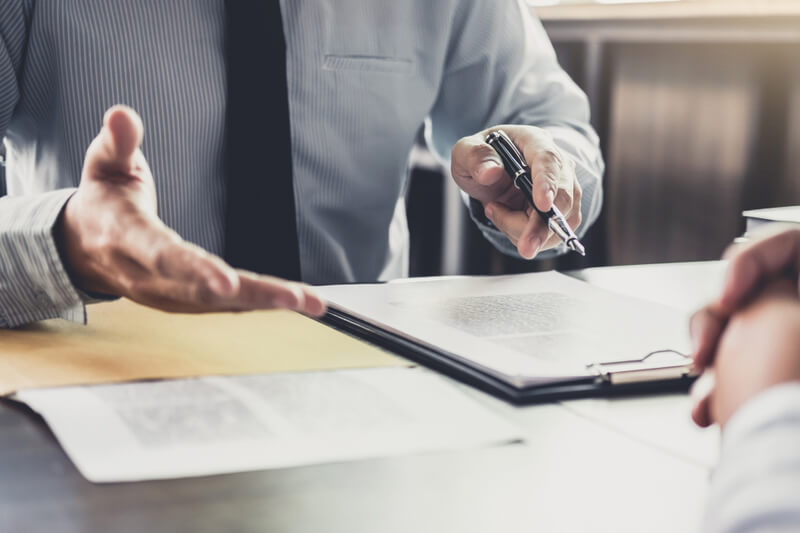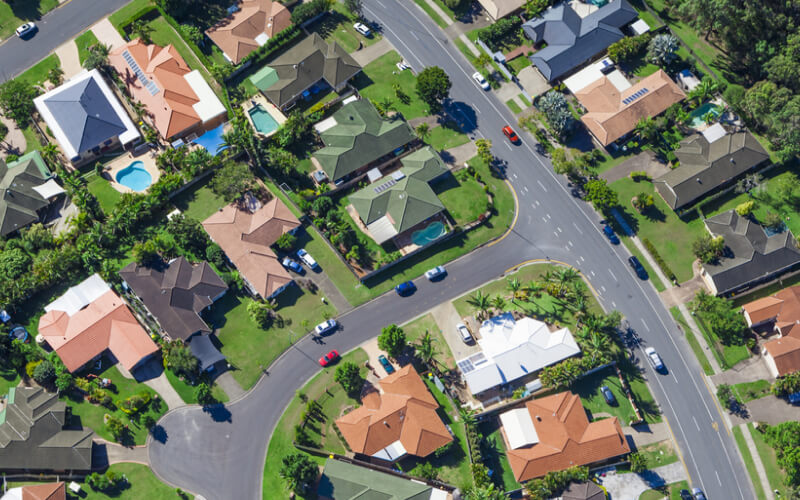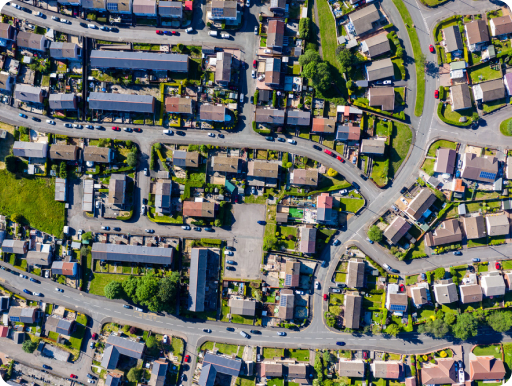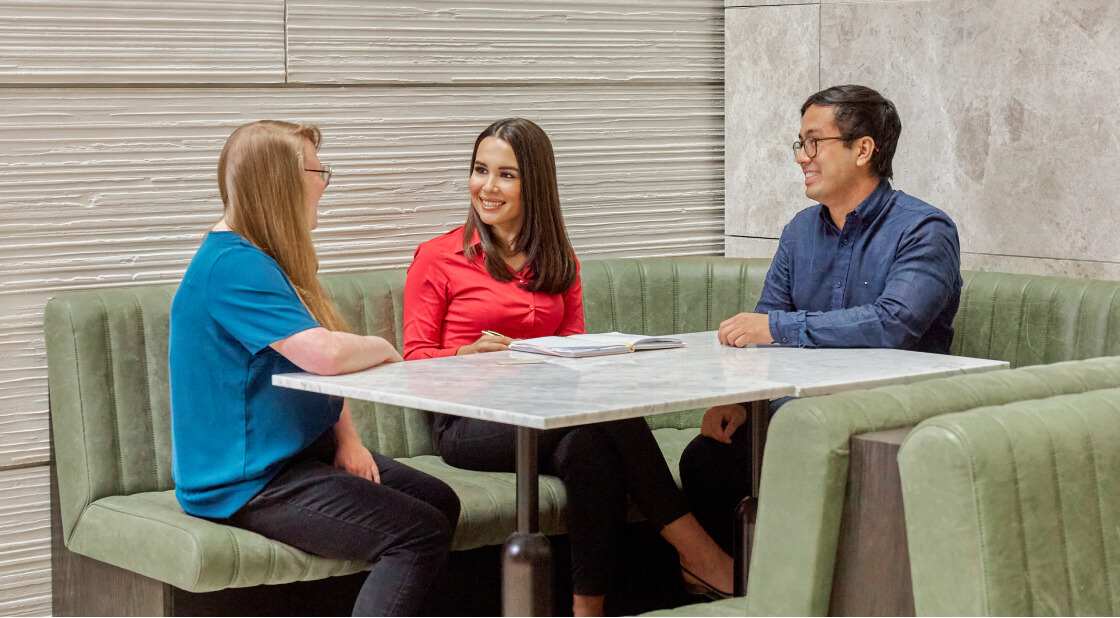Buying your first home is a major milestone – the Australian dream, if you will! However, with so many steps involved in the process, it can seem daunting and overwhelming, especially if it’s your first time buying a home. Where do you begin? How does it all work?
To help you navigate the process of buying a house in Victoria, Australia, we’ve put together a comprehensive guide that covers everything from working out what you can afford to finding the right property, and getting help from the right people to make sure you sail through the home buying process with ease.
Get a free conveyancing quote
Obligation free quote for home and land conveyancing
An 8 Step Guide to Buying Property in Victoria
1. Determine Your Budget
The first step in buying a house in Victoria is to work out what you can afford. This involves looking at your earnings and budget to determine how much you can afford to repay each week. It’s a good idea to engage a financial advisor to help you understand your options and ensure you don’t overextend yourself.
When working out what you can afford, it’s important to consider all the associated costs of buying a house, such as stamp duty, conveyancing costs, and inspection fees. You should also look into any concessions and grants that may be available to you, such as the First Home Owner Grant (FHOG) for new builds, stamp duty exemptions or concessions, and Principal Place of Residence (PPR) duty concessions.
Handy Resources
2. Get Your Deposit & Consider Your Loan Options
Once you’ve worked out what you can afford and factored in all the associated costs, it’s time to get your house deposit together. Aim for at least a 20% deposit to avoid paying lender’s mortgage insurance. If you don’t have a deposit already, you can set up a savings account or look into the First Home Super Saver Scheme (FHSS) to help you get there faster.
The FHSS scheme allows you to save money for your first home inside your super fund, which can help you save faster with the concessional tax treatment of superannuation. If you’re struggling to get a 20% deposit together, consider the HomesVic Shared Equity Initiative, which allows first home buyers to purchase a home and qualify for a home loan with a deposit of 5% or more.
When it comes to finding the right loan option and mortgage company, be sure to factor in rates and lenders’ fees. You can also seek the advice of a mortgage broker to help you navigate the loan application process.
3. Begin the House Hunt!
Now that you have your finances sorted and your deposit is in order, it’s time to start actively searching the property market on a weekly basis. Research areas you’re interested in to find out what properties are available within your price range, as well as the median property prices in different areas. It’s also a good idea to keep track of recent sale prices.
Stay on top of weekly sales results in the areas you’re interested in, as this will give you a good indication if properties are selling in the price guide they were marketed in. Attending inspections and auctions will allow you to get out there and start physically seeing what you can get for your money and prepare you for when you are ready to purchase.
4. Find the Right Licensed Conveyancer
When you buy a property, you’ll need to transfer ownership, which is called conveyancing – having a reliable and experienced conveyancer on board is crucial to ensuring that the conveyancing process runs smoothly and that the buyer’s interests are protected.
Conveyancing involves legally transferring ownership from the seller to the buyer. This process can be complex and time-consuming, involving various legal requirements and paperwork, which is why it’s important to work with a conveyancer or solicitor who is experienced in handling property transactions.
The three stages of conveyancing are pre-contract, pre-completion, and post-completion. During the pre-contract stage, the conveyancer or solicitor will review the contract of sale and advise the buyer on any legal issues or concerns. They will also conduct property searches to ensure that there are no outstanding debts or legal issues associated with the property.
During the pre-completion stage, the conveyancer or solicitor will finalise the details of the sale, including arranging for payment of the purchase price, coordinating with the seller’s conveyancer or solicitor, and preparing all necessary legal documents.
Finally, during the post-completion stage, the conveyancer or solicitor will register the transfer of ownership with the relevant government authority, ensure that any outstanding debts or charges are paid, and provide the buyer with the legal documents confirming their ownership of the property.
5. Create a Shortlist of Homes
With your finances in order and experts at the ready, the next stage is to shortlist properties that meet your criteria and schedule property inspections. Viewing a property multiple times and bringing a trusted family member or friend along can be a wise move, as they may offer a fresh perspective and valuable feedback.
Once you have narrowed down your choices, it’s time to get relevant inspections completed, such as building and pest inspections. These are critical steps in ensuring the property is structurally sound and free from pests, which can save you from costly repairs and headaches down the line. If you’re attending an auction, it’s especially important to obtain a copy of the inspection report beforehand, as you cannot add any conditions to the sale without the vendor’s agreement.
6. Prepare the Paperwork
As you near the point of making an offer on a property, it’s crucial to ensure that all your paperwork is in order and that you have a solid plan in place. Here are some important steps to consider:
- If you’re planning to bid at an auction, make sure you have a pre-approved loan in place. Remember that if you buy at auction, you cannot make the contract of sale subject to finance without the vendor’s agreement.
- Obtain a statement of information from the real estate agent, and ask about any items that may appear to be fixtures but could potentially be removed by the seller at settlement.
- Decide on your strategy for making an offer or bidding at auction, and think about how you’ll stay within your budget.
- Make sure you’re familiar with your cooling off period rights when purchasing a property for sale.
By taking these steps, you can approach the process of making an offer or bidding at auction with confidence and ensure that you’re making informed decisions along the way.
7. It’s Property Purchase Time!
Congratulations on reaching this stage of the property buying process! You’ve worked hard to get to this point, and now it’s time to finalise the deal. To do so, you’ll need to arrange payment of the deposit in exchange of contracts and negotiate a settlement period that works for both you and the current owner.
It’s also important to gather all the necessary documentation and prepare for settlement, which includes completing a final inspection and checking everything off in the due diligence checklist provided by the estate agent. Additionally, don’t forget to pay stamp duty and land transfer fees and await the transfer of title deeds and documents. With all these steps completed, you’ll soon be the proud owner of your new home.
8. Get Ready to Move in
As you prepare to move in, there are a few things you can do to make sure the transition goes smoothly. Here’s a handy checklist to get you started:
- Arrange for the transfer of utilities, such as electricity, water, and internet services, so that everything is ready when you move in.
- Once you have the keys to your new place, consider changing the locks to ensure your safety and security.
- Think about any maintenance or repairs that need to be done before moving in, such as deep cleaning or painting. Schedule any necessary work in advance, so it fits with your moving schedule.
By following these steps, you’ll be well on your way to settling into your new home.
Understanding the Cost of Buying a House in Victoria
When you decide to buy a house in Victoria, it is important to have a good understanding of the costs involved. These can include legal fees, stamp duty, deposit, investment property costs, finance and insurance costs, building and pest inspections, and ongoing expenses such as mortgage repayments, utilities, council rates, and more.
Conveyancing Fees
When you buy a house in Victoria, you will need to engage the services of a conveyancer or lawyer to carry out the legal work associated with the transaction. The cost of these services varies depending on the complexity of the transaction. It is recommended to budget between $1,000 and $3,000 for these fees.
Stamp Duty
Stamp duty is a tax applied to the purchase price of the property and varies depending on the state you live in. There are stamp duty calculators available online that can help you determine the specific amount you will need to pay.
Deposit
To secure a home loan, you will need to come up with at least a 10-20% deposit. However, if you want to avoid paying Lenders Mortgage Insurance (LMI), you will need to have at least a 20% deposit. While there are low deposit home loans available, you will need to pay a higher amount for the mortgage insurance associated with them.
Investment Property Costs
If you are buying an investment property, there are additional costs you need to consider, such as maintenance, insurance, property management, council and water rates, land tax, and body corporate fees (in some cases). Additionally, you will need to make interest rate payments if you are borrowing to fund the purchase.
Finance and Insurance Costs
If you are borrowing more than 80% of the purchase price of your house, you will need to pay Lender’s Mortgage Insurance (LMI). You may also need to pay fees for valuations, applications, and settlements. Mortgage application fees can range from $200-$600, and a valuation could cost $400-$500 if the bank doesn’t waive the fee.
Building and Pest Inspections
A complete building and pest inspection is crucial when buying a house in Victoria. This will ensure that the property is structurally sound and free from pest infestations. Inspections typically cost between $500 and $700.
Additional Costs
Other costs to consider when buying a house in Victoria include ongoing mortgage repayments, utilities, moving costs, council rates, strata fees, home and contents insurance, mortgage protection insurance, and repairs and maintenance. It is recommended to have $5,000-$10,000 in a savings account for emergency repairs.
Streamline Your Home Purchase with the Right Conveyancer
Are you feeling overwhelmed by the thought of buying a new house? With the right conveyancer on your side, you can make the process of buying a new house a breeze. By entrusting your conveyancing needs to a professional, you can have peace of mind knowing that everything is being taken care of, from legal checks to contract signing. So why wait? Take the first step towards a stress-free home buying experience and hire a conveyancer today.
Get a free conveyancing quote
Obligation free quote for home and land conveyancing
First Home Buyers FAQs
What government incentives or grants are available for first home buyers?
In Australia, there are several incentives and grants available to first home buyers, such as the First Home Owner Grant (FHOG), which provides a lump sum payment towards the purchase or construction of a new home. There is also the HomeBuilder grant, which can provide up to $25,000 towards building a new home or renovating an existing one. Additionally, some states and territories may offer their own grants and stamp duty concessions.
What should I consider when choosing a location for my first home
When choosing a location for your first home, there are several factors to consider, such as the proximity to work or school, public transportation options, access to amenities such as shops and parks, and the overall safety and livability of the area. It’s important to do your research and visit different suburbs to get a sense of what each one offers before making a decision.
How much deposit do I need to save for my first home?
The amount of deposit you need for your first home can vary depending on a number of factors, such as the purchase price of the property and the type of loan you are applying for. Generally, it’s recommended to have a deposit of at least 20% of the purchase price, but there are some lenders who may accept a lower deposit. Keep in mind that if your deposit is less than 20%, you may be required to pay lenders mortgage insurance (LMI).
Should I buy an established home or a new property?
Whether to buy an established home or a new one is a personal decision that depends on your individual preferences and circumstances. Established homes may offer more character and be located in established neighbourhoods, while new homes can offer modern features and may be more energy-efficient. It’s important to weigh the pros and cons of each option and consider factors such as the age of the property, potential maintenance costs, and the availability of government incentives or grants.
What’s involved in the conveyancing process?
Conveyancing is the process of transferring ownership of a property from the seller to the buyer. It involves several stages, such as conducting searches to ensure there are no outstanding debts or issues with the property, negotiating the terms of the sale contract, and arranging for a settlement. It’s important to work with a conveyancer or solicitor who can guide you through the process and ensure everything is done correctly.
Get a free conveyancing quote
Obligation free quote for home and land conveyancing
Read More












